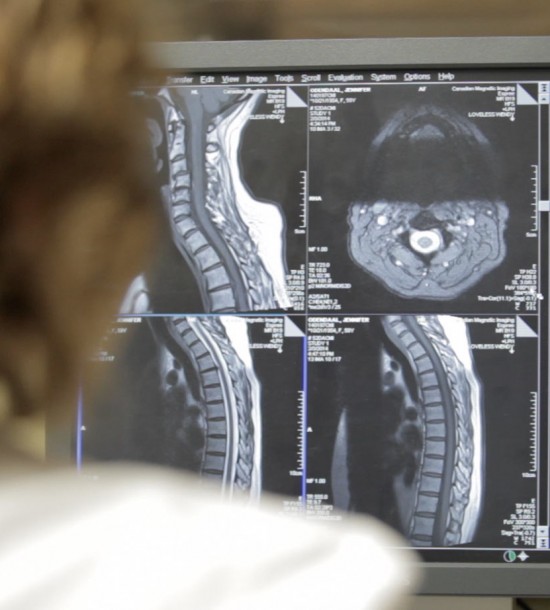Public Advisory: ICBC Doctor Martin Grypma
Posted on by Mussio GoodmanDr. Martin Grypma has been c for his Unnecessary Comments in Legal Matters
In claims involving personal injury, it is often necessary for the claimant and ICBC to retain independent medical experts to assess the claimant’s injuries.
The purpose is to have an independent expert doctor provide the parties and ultimately the court an opinion on the claimant’s injuries. The opinion usually includes a diagnosis of the claimant’s present injuries and his or her prognosis for the future. These opinions can be helpful either to the parties in reaching a settlement, or to the court in awarding damages at trial.
Pursuant to the Rules of Court in British Columbia, any doctor who provides a written expert opinion to the court has a legal duty to assist the court and not to be an advocate for any party. In addition, the doctor has a legal duty to certify in her report that she was aware of the duty, has made their report in conformity with the duty, and will conform with the duty if called upon to give oral or written testimony at trial.
ICBC routinely retains expert doctors from a roster that includes several who have been criticized by the Court for various reasons, including failing to abide by the duty to not advocate for any party.
One such expert whom ICBC routinely retains to provide opinions is Dr. Martin Grypma. Dr. Grypma is an orthopedic surgeon whose practice now largely involves conducting medical assessments for ICBC.
Judges Have Publicly Strongly Criticized Dr. Grypma for his Opinions
Over the last three years, Dr. Grympa’s opinions have been strongly criticized by the Court no less than eight times for various reasons:
Currie v. McKinnon 2012 BCSC 698. Dr. Grypma’s report contained observations that the Court found were “either outside the scope of his expertise or …unnecessary.” Specifically, the Court found that Dr. Grypma’s comments attacking the plaintiff’s credibility were “highly unusual” and “in the nature of argument.” Further, the Court held that those comments, “[had] no place in an expert report from a medical expert, especially where the expert has certified he understands his duty not to be an advocate for any party.”
Dr. Grympa concluded that the Plaintiff’s injuries were minor and healed quickly. In coming to that conclusion, Dr. Grympa relied on statements in another doctor’s consult report which noted that the plaintiff never came to any injury or harm. The Court found that the other doctor’s statements were in fact in relation to the plaintiff’s epileptic seizures. The Court concluded that Dr. Grympa took the comments out of context and that the references were misleading.
Devilliers v. McMurchy, 2013 BCSC 730. After reviewing Dr. Grypma’s opinion, the court concluded “[o]verall I found Dr. Grypma’s evaluation of [the plaintiff] to be ill-considered and superficial, and I give no weight to his evidence”.
Khosa v. Kalamatimaleki, 2014 BCSC 2060. Other than pointing to the possibility of a non-organic injury, the Court “did not find Dr. Grypma’s opinion or his trial testimony to contribute any meaningful insight into either the nature of Mr. Khosa’s current condition or her prognosis.”
Dunne v. Sharma, 2014 BCSC 1106. The Court found that Dr. Grypma’s conclusions were “quite markedly at odds with those” of the plaintiff’s expert. The plaintiff’s expert was preferred.
Cai v. Insurance Corporation of British Columbia, 2013 BCSC 2213. Dr. Grypma’s report was excluded for a number of reasons, including a finding that Dr. Grypma formed his opinion based on an incomplete medical history.
Culos v. Chretien, 2012 BCSC 1050. Dr. Grypma opined that the plaintiff’s injuries were not related or caused by the accident in this case. The court rejected his opinion in this regard.
Bissonnette v. Horn, 2012 BCSC 518. Part of Dr. Grympa’s conclusion was that the plaintiff did not experience left hip pain. The Court rejected parts of Dr. Grympa’s evidence as based on incorrect assumptions about the plaintiff’s reporting to her doctor.
Sekihara v. Gill, 2014 BCSC 1387. Dr. Grypma arrived at conclusions contrary to those of the plaintiff’s experts. The Court commented that “[i]n his evidence, Dr. Grypma does not appear to have demonstrated an open mind in his examination of and conclusions regarding [the plaintiff] or to have taken into account the complete medical history”.
ICBC Continues to Hire Bias Doctor for Their Benefit
This selection of reported case law shows that, in spite of ICBC’s public-relations campaign about how they treat injured claimants fairly, ICBC has hired and continues to hire doctors who have a well-established reputation for bias and other questionable conduct.
It also underscores the important role a personal injury lawyer can play in assisting an injured claimant. At Mussio Law Group, we go to great lengths to ensure that our clients are protected from such biases, while retaining the proper experts to assess our client’s injuries in a fair and impartial manner.
Tweet


